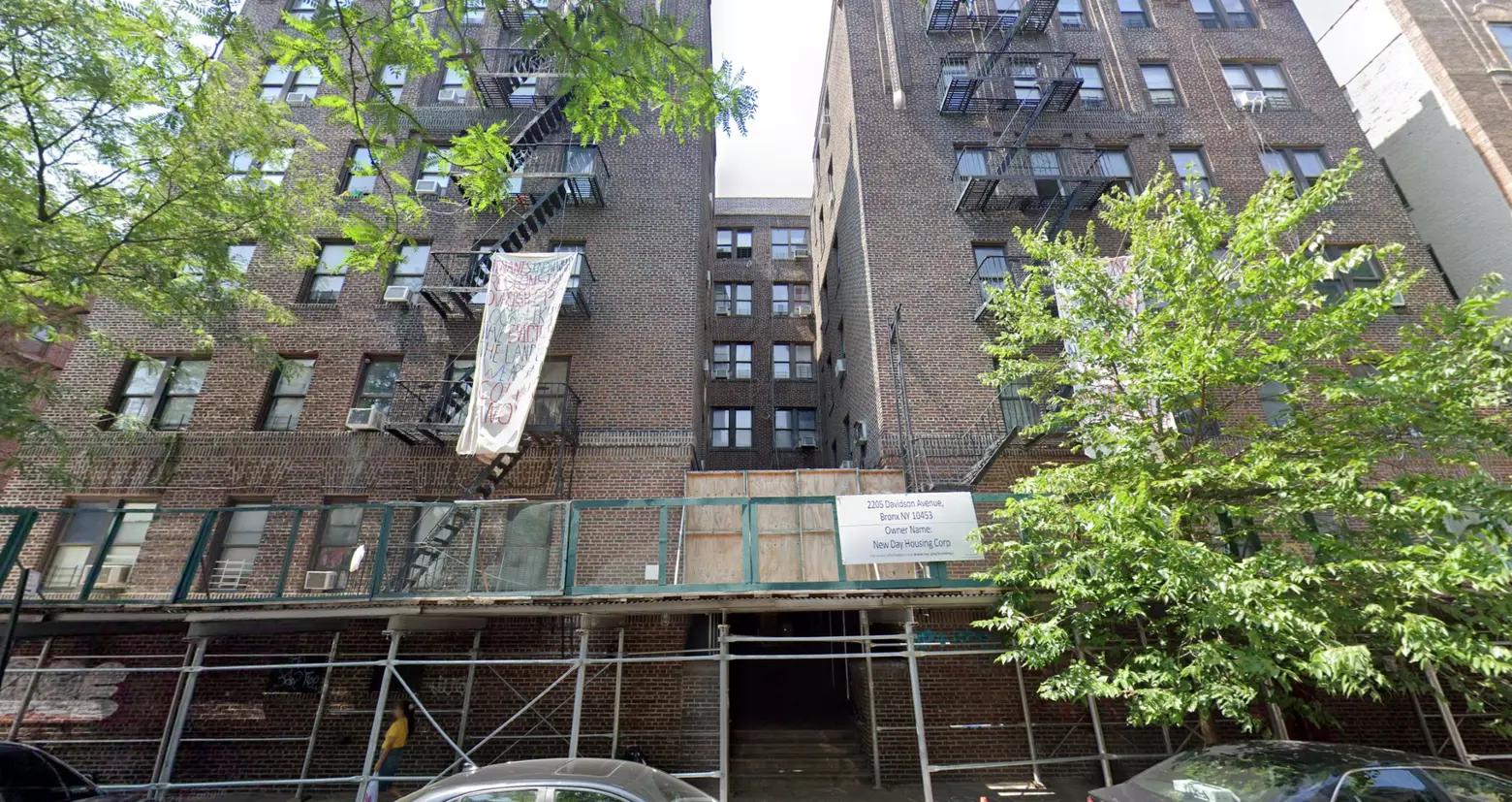NYC seizes building from negligent landlord for first time in seven years


Streetview of 2205 Davidson Avenue, Map data © 2024 Google
New York City has taken ownership of a building from a negligent landlord for the first time in over seven years. After a decade of organizing by tenants against landlord David Kornitzer, the city has foreclosed on the 49-unit building at 2201–2205 Davidson Avenue in the University Heights section of the Bronx, as first reported by Gothamist. Kornitzer had racked up numerous housing violations and financial penalties, owing the city $28 million in back taxes, emergency repairs, and other fees as of February.
There are currently more than 600 open housing violations at the property, according to Department of Housing Preservation and Development (HPD) records. These include 245 “immediately hazardous” violations, such as mold, hot water outages, and broken locks. Residents have complained about issues with the building for more than a decade.
The property has been turned over to nonprofit developer Neighborhood Restore and private manager Lemle and Wolff, who plan to renovate the building and help current tenants transition to homeownership through permanently affordable co-ops.
The nonprofit will first “stabilize” the building by making immediate repairs and issuing new leases. Then, architects and designers will gut the property, which could take 18 to 24 months, followed by additional construction and repairs that could take another few years, according to Bronx Times.
Tenants might need to relocate during construction, but Lemle and Wolff and the Northwest Bronx Community and Clergy Coalition told the Bronx Times they would handle it, ensuring residents stay as nearby as possible and pay the same rent.
According to City Council Member Pierina Ana Sanchez, whose district includes the Davidson Avenue property, more than 80 percent of the building’s tenants have signed a petition expressing interest in becoming part-owners. To move forward, tenants must continue paying rent on time and “prove they’re ready for resident ownership.” HPD will evaluate and approve tenants for co-op ownership at a later date.
The foreclosure marks the first time in seven years that the city has taken over a building due to landlord negligence since ending its Third-Party Transfer (TPT) program, as reported by Gothamist. Kornitzer’s whopping $28 million in debt made it possible.
In February 2024, Kornitzer expressed interest in giving the property up, according to email communications with Neighborhood Restore, as reported by The Real Deal. Residents stopped paying their rent as the problems worsened, and a rent arrears report from this February showed that tenants owed $3.2 million. Kornitzer blamed unpaid rent for his inability to keep up with building repairs.
The Legal Aid Society filed a lawsuit last year on behalf of tenants at the building, calling for immediate repairs and the third-party transfer of the property. The group said it plans to continue to fight against the former owners.
“We celebrate the transfer of 2201-05 Davidson Avenue through the TPT program—a major victory for the tenants we’ve represented for nearly a decade,” Russell Crane, an attorney in the Housing Justice Unit – Group Advocacy at Legal Aid, said.
“This marks the end of years of neglect, including broken elevators, heat and water outages, and hazardous conditions.”
The HPD paused the TPT program in 2019 after years of complaints that the city disproportionately seized debt-ridden properties owned by people of color. In response, NYC formed a working group to review the program and provide recommendations, leading to a final report released in November 2021. However, the program remains on hold.
Officials argued that the Davidson Avenue building should be grandfathered as it had appeared on a previous list of properties targeted for seizure, according to Gothamist.
In October, Councilmember Sanchez introduced legislation to revive the TPT program with added protections for smaller landlords who have been disproportionately affected in the past. Sanchez argues that the program is the most effective tool to hold landlords accountable, as reported by The Real Deal.
RELATED:




